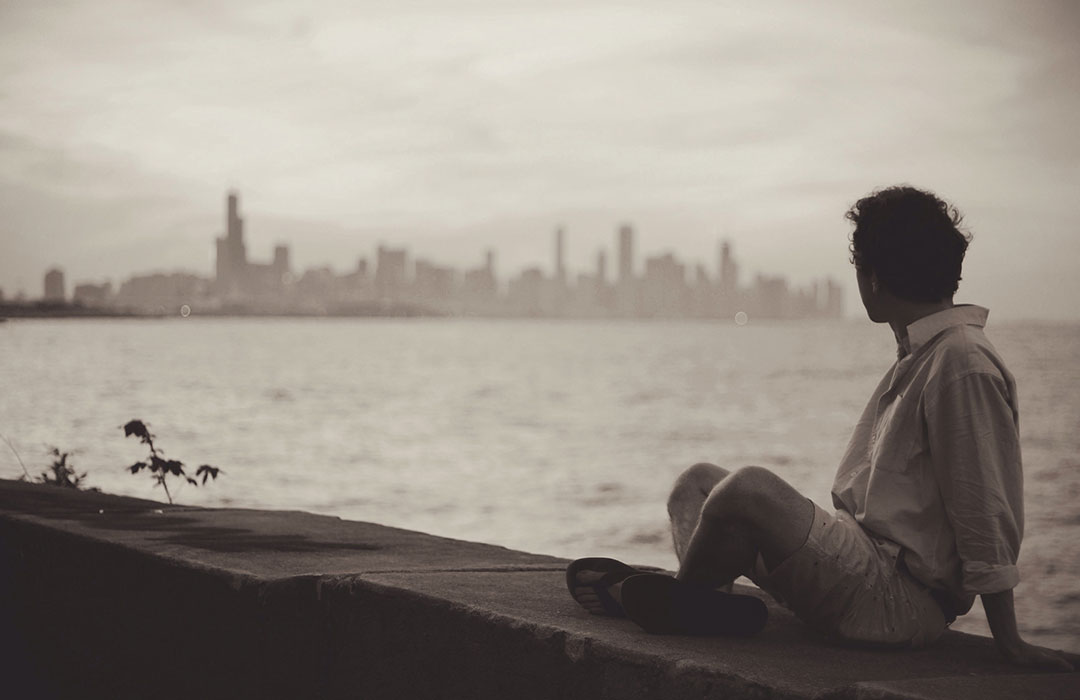
The Isolation Epidemic is Real
Loneliness involves a deep sense of isolation and disconnection from others, and it occurs when people feel that they have no one with whom to share the joys and hardships of life. Some have stated that their loneliness feels less like sadness and more like an imprisonment that leaves them despondent toward life.
I suppose that is why solitary confinement is such a severe punishment.
Statistics on Loneliness
While everyone can benefit from some amount of alone time, a healthy and fulfilling life needs close, interpersonal relationships. Unfortunately, people today feel more isolated than ever. The average family unit is severely fractured, the divorce rate is at almost 50 percent and more people live alone today than ever before in American history.
In my counseling practice, more than half of the clients who solicit therapy — no matter what their presenting problem (depression, addiction, anxiety, sexual issues etc.) — are also presenting a severe lack of interpersonal relationships. In direct response to their loneliness, many feel cynical and depressed; they lack confidence and feel rejected, alienated and inadequate when it comes to building meaningful relationships.
Some time ago, I began asking myself, “Why are the majority of my clients, many who are young, attractive, intelligent and even well-to-do, so profoundly disconnected from others?” I have identified several reasons, and in doing so, I’ve identified a number of strategies for overcoming isolation and building important relationships.
My clients and I refer to the process as “refilling the inner circle,” and we have specific criteria (identified at the end of this article) a relationship must meet to be considered part of one’s inner circle.
Let’s begin by looking at why persons today are so isolated.
Our Society is Primed for Isolation
It is easy, even in vogue, to blame society for our problems. And while I am going to go ahead and say that society is a major part of the loneliness problem, I would also like to remind everyone (including myself) that society is not some tyrannous construct that operates our lives. Our society is each one of us. We are the society that we blame.
So how is our society (meaning all of us) affecting the number of relationship-starved clients pouring into Thrive Boston Counseling? Harvard professor Daniel Gilbert points out that people today have to answer three major life-questions that their parents, grandparents and great grandparents didn’t answer.
Those questions are:
- Where to live
- What to do
- Who to do it with.
Less than a century ago, most people were born, raised, lived and died in one community. They did the job their parents did. They would build friendships in grade school and at church, and they’d keep those friends for the duration of their lives. They wed early and had several children in their early 20s. Making new friends and family was not an issue. They lived and died surrounded by their kith and kin.
Today, however, the norm is to leave one’s family and friends behind as we pursue our educational and vocational goals. First, we leave for college, where we usually build new friendships. Those don’t last either because undergrad ends and we move again — maybe multiple times in our 20s and 30s.
Each time we travel alone, we leave old relationships behind (physically) and have to establish new relationships at every juncture. All the while, we are more focused on our education or career than we are on personal relationships, so the task of making friends is always at the bottom of the to-do-list. And nothing at the bottom of the to-do-list ever gets done.
The result: Many of us have no close friends, we are unmarried and we live lives that feel (to our unfortunate surprise) empty and bleak.
Community is a Dirty Word
“Community” and “family” are becoming foreign (even dirty) words. We place a low value on community because we don’t really understand what it really is anymore. When we think about community, many of us envision a small town with cantankerous old couples walking down the street, sheriffs with big hats, corner stores that close at 6 p.m. (and all day Sunday) and one-dimensional suburban families.
This image of community has little that interests us and even less to offer, but is (thankfully) a lie.
Strategy 1: Redefine Community
Community is what you want it to be. Community means joining a kickball team. Community means being surrounded by friends who love you, who you respect and who you want to share your life with. For many of us, an acceptable community looks more like “dorm life” than a Norman Rockwell painting.
Community is having three friends who show up at your place at 8 a.m. with coffee — uninvited. Community is having those same friends knock on your door at 5 p.m. on a Thursday to pull you away from the computer.
The corner store in your community is open 24 hours a day, even on Christmas.
Strategy 2: Kill Your TV (It’s mocking you)
Here is a short list of popular shows: How I Met Your Mother,Grey’s Anatomy, Scrubs, Friends (ok, Friends is a bit old), Lost and The Office.
Why are these shows so popular? Better yet, what do all of these shows have in common? Answer: Every hit show on this list displays profoundly close relationships that most of us don’t have in our lives. The Grey’s Anatomy cast lives together, the Lost cast is lost together, and do you remember that episode of Scrubs where three of Dr. Cox’s patients died? His colleagues took shifts sitting with him in his apartment as he drank himself silly.
I am willing to bet that what really draws us to these shows extends beyond the lavish lifestyles, exotic environments or interesting jobs these characters have. What makes us want to watch these shows are the close relationships between the characters. The TV mocks us because we miss this truth all the time. We watch Grey’s Anatomy and think we want to be a doctor. All we really want is to live in a big old house with six close friends.
Kill your TV. Move into a house with six close friends. You will miss two seasons of your favorite show and not even notice.
Strategy 3: Things are the Red Herring
In the video game “The Sims,” the player controls the actions of an average person (a “sim”) living a normal life. You start with a basic house, help your sim to get a job, build friendships and buy various things. Buying stuff is a lot of fun since there are hundreds of items that range from gym equipment and flatscreen TVs to modern art that you can buy for your sim, and the goal is presumably to make that sim’s life more enjoyable.
The creator of “The Sims” was once asked in an interview about the materialism surrounding the game. He explained that the items are “Red Herring,” and the way to win the game (i.e. have a happy sim) has nothing to do with the items. Their happiness derives from strong relationships with the other game characters.
We make the same Red Herring mistake in our real lives. We work 50+ hours per week to buy things we think we want or to live in lavish spaces we can hardly afford. All the while, we would be happier sitting on milk crates with a group of close friends. A house full of nice things, but without friends, is hell.
Here is the secret to personal success: People, not stuff. Community, not career.
Strategy 4: Explore People, not Places
Not long ago, I was listening to a lecture by a Stanford Professor who spoke about a research study that investigated people’s priorities.
Here’s how the study worked: Participants of different ages were shown two different marketing campaigns. One of the campaigns appealed to the person’s desire for learning and adventure; the title read something to the tune of “Explore and learn from far off places.” The second campaign appealed to the person’s desire for relationships. The title read something similar to “Build relationships with those you care about.”
Which marketing campaign do you think people preferred? It depended on age.
The younger participants chose adventure, and the older participants chose relationships. The older people are wiser, right? Maybe not. When the older participants were first asked to imagine that a drug had hit the market that was guaranteed to extend their life by several decades, they also chose adventure and learning.
I found this interesting and then saddening. Not because I don’t like exploration, but because adventure and learning without relationships is hell. The participants were continually prioritizing something that would ultimately make them less happy (interestingly, it was only the idea of death that led them to prioritize what was of real value).
A client of mine, let’s call him Doug, was profoundly unhappy and lonely. His solution was to leave the ivory tower of Harvard and move to Florida. There, he would buy a jet ski and a satellite dish. He would build computers and fix four wheelers. “Not bad!” I told him. “Close your eyes and imagine being there. Imagine being there for two days alone. How happy are you?” As we explored the idea, he began to see that after only an hour on the Jet Ski, he would be bored. He would want to talk to someone.
The idea of the lonely traveler seems romantic, but when you are that traveler, you don’t care so much about the museums after a few days. You watch people on the street. You see friends laughing and lovers holding hands. Soon, you are on your cell phone, making oversees calls to connect to the people you thought you didn’t need.
Here is the secret to personal success: People, not places.
Strategy 5: Pay the Price
Every choice we make has a price. The choice to build a support system is no different. It takes an investment of time and resources, and you are going to need to put some margins into your schedule if you are going to be successful with relationships. In some cases, this is about as much work as your career. Warning: this can slow down your business, career and even money-making potential, but it can also increase your life satisfaction exponentially.
So consider this: What are relationships worth? How much money would it take for you to live a life of solitude? I am hoping there is no sum high enough. I know someone who recently left a lucrative position to be with friends in another state. Society might scoff at this, but she is happier now than she has been in years. Why do you think that is?
Strategy 6: More Confidence, More Skills
This strategy could be a book.
Sometimes, a person will remain in solitude because they have been alone for so long, they begin to think that others will not understand them, or worse, reject them. They may sadly believe that they’re unable to build and maintain close relationships that would make them happy.
First, I communicate to my clients that they have nothing to lose and the world to gain when it comes to relationships. I also remind them that other people might feel worried and hesitant about building relationships as well. I counter the idea that “no one will understand them” by telling them the truth: I talk to people all day that are feeling and saying the same exact things they are!
If they say they are not a person who can just go up to someone and talk to them, I remind them that there is no such thing as talent and that practice/experience is the only way to become the confident person they want to be.
Strategy 7: Make Sure They are in the Inner Circle
Earlier in this article, I wrote that my clients and I have specific criteria for whether a person is in their inner circle.
Here are the three that every inner circle relationship must meet:
A. You must interact with the person outside of the venue in which you met them. For example, if you meet someone at the gym, coffee shop or a friend’s house, the person cannot be considered part of your inner circle until you arrange to meet the person somewhere else.
B. You must have spent time with the person for the sole purpose of spending time together. Having friends who you play basketball with does not count as having “inner circle” friends. In this case, the focus is on having a good game of basketball, not on building relationships.
I ask my clients, “Have you gotten together with the person to just hang out? Have you gone to get coffee or a meal with this person? Have you gotten together just to catch up?”
C. You must meet with this person one-on-one and be willing to share both the joys and hardships of life with them. Does the person go to you with his/her triumphs and problems? Do you go to him/her with yours? Do you trust the person to keep something secret? Does he/she trust you to keep a secret?
The Isolation Epidemic is real. It is treatable, but only with significant lifestyle changes. The cure is not easy for many of us, but it is always worthwhile. All of the strategies I wrote here can be summarized with this sentence: Put more effort into interpersonal connections than you do anything else in your life.















Today the idea of Bill Cosby being lonely, or wanting to be alone, has a whole new meaning.
What about living in a small town with no kickball or other get-together type groups available. In my community, I never see single women do things alone. If I were to go out alone, I’m sure I’d be viewed as a whore/pariah. I’m stared at for even going to the gym or coffee shop alone. What can I do to make friends? It’s so hard when you’re past 30 and in a small town.
Amy
I feel a little awkward responding to your post, since I’m in the same lake, but not exactly the same boat, lol.
Have you thought to start your own group to “meet up”? Perhaps you sew or bike or hike or even walk for fitness? You could advertise under Craigslist community page under lessons or volunteer tabs. Just be safe, I never give my email, phone or address and only meet in busy public places.
Is there a community college you could attend classes or maybe volunteer with local nursing homes and/or food kitchens? I hope you’ve found or will find an outlet to meet people.
Good luck to you
I came across your page in a Google search, while desperately trying to find a way for me to break free from my isolation and depression.
Your words echoed many of the thoughts that are constantly running through my mind, as I lay here on my bed paralyzed by isolation and major depression.
I am that person you described that lives in the big house, runs my own company and has everything I thought I ever wanted. I buy expensive things because I feel they bring me happiness, they do, but it is short lived, all the while I’m still alone and filled with depression and sadness. When that short rush of happiness ends, I go out and do it all over again.
I thought I was creating a home in which I could be forever happy, I’d meet the man of my dreams and we would live an amazing life here together. “Build it and they will come” was my plan, but I’m now afraid to reach out to anyone because they will see the real me; a man that really doesn’t love himself, a man that has lost his inner light, his laughter and his desire to actually live. Why would anyone want me in their life, no matter how succesful I may be? I sure wouldn’t want to date someone like me. So, laying here isolated and depressed on my bed, I actually feel safe, my secret is hidden and I don’t have to pretend to still be the happy man everyone once knew. I can take off the mask others see when I’m in public, placing it next to my bed, ready for the next time I have to venture out.
From childhood well into my 30’s, I was an outgoing, cheerful, and loving guy that loved to be of help to others, my parents called me “the friend of the friendless”. I was the kid that kept the bullies away from other kids that were seen to them as weak or different; I was proud to have them as my friends. I was always on the go, meeting new people, enjoying all that life had to offer. Fast forward to today, I have one friend remaining from all the others from which I have slowly drifted away. I never said goodbye, just slipped into my life of isolation. I push myself to make it to my office during the week, though my staff sees me as an outgoing, respectful and succesful man, it is just the mask I wear. Inside I am yearning to be at home, safe in my bed where I can shut the world out.
I see a psychiatrist every Friday, he sees my mask too. The medications I take for depression have never really worked, or maybe they do and this is an improved version of the worst I could be?
I am blessed with a loving family that reaches out to me all the time, they try so very hard to break through and have me become part of this world again, I don’t have the energy nor the desire; though there is nobody on this earth that I love more than my parents and my sister. It tears me apart knowing the constant fear that they carry, knowing that their son may choose to end his life at any moment. I truly believe the only thing that keeps me here on this earth is not wanting to hurt my parents, I know they would somehow feel responsible; nothing could be further from the truth. I just want to fall asleep in my bed, slipping away from this world peacefully; with my family knowing this was what I had do and for them to be at peace knowing that I am too.
I lay here while listening to the world outside pass me by, I can hear the firework show at Disneyland in the distance, it is “the happiest place on earth” just not the earth I’m on.
Dear David,
It is very brave of you to express yourself so honestly and openly. I admire you and truly sympathize with you, partly because I experience much the same myself. I don’t have the house and the things: I am on a very low income; but I do have everything else.
I have often thought lately that it would be a relief not to be conscious any more. Of course, it wouldn’t actually be a relief if everything else ended when the pain did: I can’t feel relieved if I’m not there to feel.
I used to have a strong religious faith, but now it is in crisis. I thought for a little bit that once my faith was well and truly dead I could find happiness with the man of my dreams; but my faith isn’t completely gone, and the man who was supposed to replace God hasn’t materialized …
I am so isolated, so depressed, so anxious and so self-doubting that it is just not possible at this time for me to go out to a bar or other social venue by myself: and I don’t have any friends who could help me, nobody with whom I can really be myself.
I know that part of my problem is that I have not come to terms with my sexuality. Family and religion have much to do with that. I have decided to try counseling (not reparative therapy or anything!) and some discussion groups. Maybe I will find a friend.
I wonder if you will ever read this reply to your comment. I wish you, and any reader, all the best.
Jeremy, i read your comment. Thank you.
David,
I feel like your last paragraph described my thoughts almost every day for the last 3 years. I’ve come close many times to ask my kids for their permission to go. But I lost my little brother to suicide 7 years ago and I know that’s not a pain I could put on them purposely.
David I truly hope wherever you are in life now a year later, it’s a better place. My heart goes out to you.
Good luck